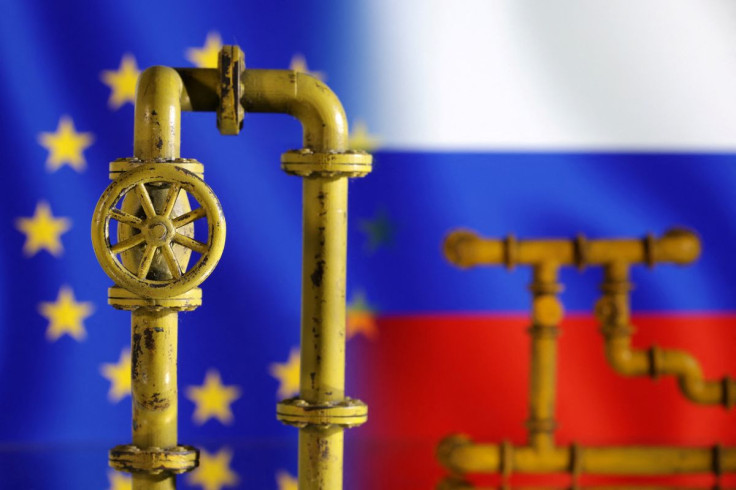Europe Seeks Compromise Deal On Gas Use As Russia Cuts Supply

European Union countries are set to approve a weakened emergency proposal to curb their gas demand on Tuesday, with opt-outs allowing them to follow different national paths to prepare for Russian supply cuts.
Europe faces an increased gas squeeze from Wednesday, when Russian's Gazprom has said it would cut flows through the Nord Stream 1 pipeline to Germany to a fifth of capacity.
With a dozen EU countries already facing reduced Russian supplies, Brussels is urging countries to prepare by saving gas and storing it for winter for fear Russia will completely cut off flows in retaliation for Western sanctions over its war with Ukraine.
Energy ministers are meeting to approve a proposal for all EU countries to cut gas use by 15% from August to March. The European Commission, which proposed the measure last week, said it would make the cuts binding in a supply emergency.
Member states have resisted the plan and redrafted it to exempt and reduce the gas cuts for numerous countries and industries. Spain, Estonia, Greece and Poland's ministers were among those optimistic a deal would be struck on Tuesday.
German Economy Minister Robert Habeck said an agreement would show Russian President Vladimir Putin that Europe remained united in the face of Moscow's latest gas cuts.
"You will not split us," Habeck said.
Russia's Gazprom has blamed its latest reduction on needing to halt the operation of a turbine - a reason dismissed by EU energy chief Kadri Simson, who called the move "politically motivated".
Russia has said it is a reliable energy supplier.
It also says its invasion of Ukraine, begun on Feb. 24, is a "special military operation".
BINDING VERSUS EXEMPTIONS
The latest EU proposal, seen by Reuters, would exempt from the binding 15% gas cut countries such as Ireland and Malta that are not connected to other EU countries' gas networks.
Countries that meet an EU target for filling gas storage by August could face weaker targets - softening the cuts for roughly a dozen states, including Germany and Italy, based on current storage levels.
Countries can also exempt the gas they use in critical industries, such as energy-intensive steelmaking, from the target, while those that export gas to other EU countries can knock 8 percentage points off their demand reduction target.
The EU plan has tested countries' solidarity, with Greece, Poland and Spain among those opposed to mandatory gas cuts - albeit for different reasons.
Spain, which does not rely on Russian gas, said cutting its own demand would not help other countries, since it lacks infrastructure capacity to share its spare gas.
"Everyone understands that when someone asks for help, you have to help. Help can be in different ways, but I believe that the spirit of collaboration will prevail," Spanish Energy Minister Teresa Ribera said.
Polish Climate Minister Anna Moskwa said the latest proposal would impose no constraints on Poland's gas use, and opposed the idea that a country should curb its industrial gas use to help other states facing shortages.
With a wide range of opt-outs now in the proposal, some EU diplomats said it may fail to save enough gas for winter.
Although governments including Germany, Europe's biggest gas user, have upped their energy saving measures, EU countries have reduced their combined gas use by only 5%, despite months of soaring prices and dwindling Russian supplies.
"Fifteen percent will probably not be enough given what the Russians have just announced," Irish Environment Minister Eamon Ryan said.
Russia supplied 40% of EU gas before its invasion of Ukraine in late February.
The draft proposal would also require a majority of countries to trigger the binding gas cuts, after many opposed the Commission's original proposal that it have the final say.
© Copyright Thomson Reuters 2024. All rights reserved.











